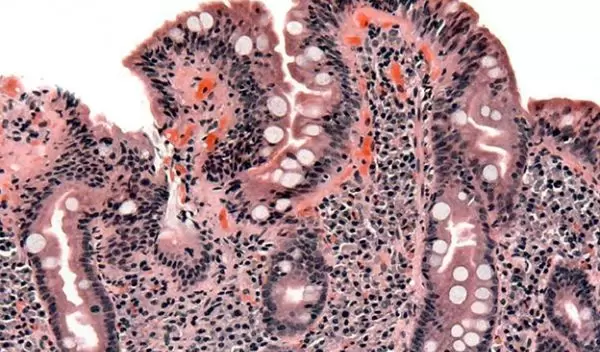
In infants, changes in gut microbiome precede onset of celiac disease
By implementing a long-term, prospective approach in the development of celiac disease, scientists have identified substantial microbial changes in the intestines of at-risk infants before disease onset.
Using advanced genomic sequencing techniques, MassGeneral Hospital for Children researchers, along with colleagues at institutions in Italy and the University of Maryland, College Park, uncovered distinct preclinical alterations in several species, pathways and metabolites in children who developed celiac disease compared to at-risk children who did not develop celiac disease.
The U.S. National Science Foundation-funded researchers identified changes in the gut microbiomes and metabolomes of infants that occurred months before celiac disease onset. Changes include an increased abundance of pro-inflammatory species and decreased abundances of protective and anti-inflammatory species preceding the onset of the disease, according to a paper published in Proceedings of the National Academy of Sciences.
"We compared the gut microbiomes of 10 infants who went on to develop celiac disease to the gut microbiomes of 10 infants who did not develop the autoimmune condition," says Maureen Leonard, lead author and clinical director of the Center for Celiac Research and Treatment at MassGeneral. "We found significant changes in the intestinal microbes, pathways and metabolites as early as 18 months before disease onset. That was much earlier than we expected."
Researchers in Italy, Spain and the U.S. are studying 500 genetically at-risk infants from birth through age 10, tracking changes in gut microbiota before celiac disease develops. The investigators used metagenomic analyses that linked microbial composition with function, highlighting changes in pathways associated with increased inflammatory processes or reduced inflammation.
The findings, if confirmed by larger datasets, may represent specific therapeutic targets for disease interception and possible prevention of celiac disease onset through microbiome manipulation, say the researchers.
